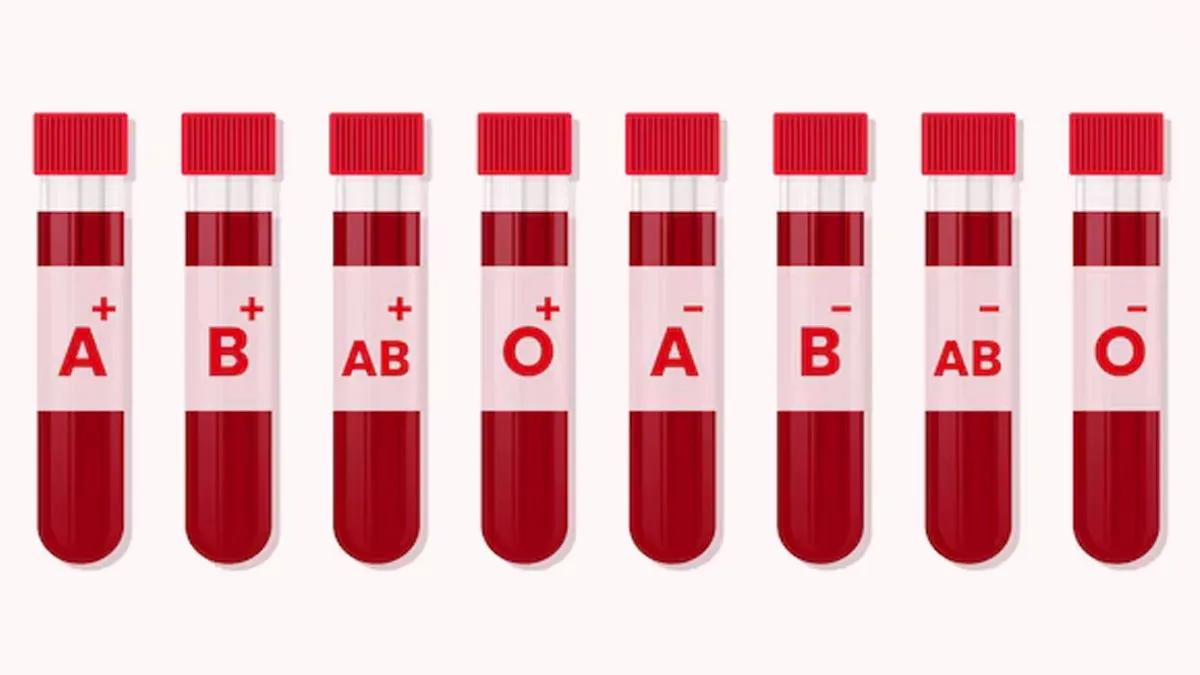
For most people, blood type is something they learn once and rarely think about again, perhaps when signing up for a blood donation camp, getting admitted to the hospital, or during routine pregnancy screenings. However, in recent years, scientists and doctors have started to explore whether these simple letters: A, B, AB, or O may hold more information about our health than we ever realised.
Table of Content:-
This doesn’t mean blood type will replace other medical tests or that it’s a crystal ball for disease. But there are patterns, subtle yet consistent, that suggest blood groups may influence how our bodies respond to certain health risks. Think of it not as a diagnostic tool, but as an additional layer in the broader understanding of a person’s health profile.
We spoke to Dr MA Suboor Shaherose, Consultant, Haematology, Medical Oncology, CARE Hospitals Banjara Hills, Hyderabad, who explained what your blood type reveals about your health risks.
According to a 2016 study, different blood types may be more susceptible to certain infections:
- Type O: plague, cholera, mumps, and TB
- Type A: smallpox and Pseudomonas aeruginosa
- Type B: gonorrhoea, TB, and various bacterial infections
- Type AB: smallpox, E. coli, and salmonella
- Additionally, non-secretors may be more prone to meningitis, influenza, and other infections.
Blood Type and Heart Health

"People with blood types A, B, or AB often have slightly higher levels of certain proteins in their blood, specifically ones that help it clot, such as von Willebrand factor and Factor VIII. Now, these proteins are important because they help stop bleeding when you get hurt," said Dr Shaherose. However, if there’s a little too much of them, especially in someone who already has other risk factors like high blood pressure or cholesterol, it may tip the balance and cause the blood to clot more often when it shouldn't. That’s when the risk of things like heart attacks or strokes can go up.
In someone with other cardiac risk factors, such as high cholesterol or a family history of heart disease, this slight difference could matter. It doesn’t mean a heart attack is inevitable, but it’s one more reason to stay ahead of screenings, especially for those in middle age or older.
People with type O blood usually have lower levels of these clotting proteins, which may give them a bit of protection against heart attacks and strokes. But the trade-off is they might bleed more than others during surgery or if they get hurt. So again, context is everything.
Also Read: How Your Blood Group Influences Your Chances At Heart Attack
Infection Risks and Blood Type
Our blood group antigens, the markers that determine our blood type are present not just on Red Blood Cells (RBCs), but also on the surfaces of many other cells, including those lining the respiratory and digestive tracts. "Certain viruses and bacteria appear to latch on more easily to cells of one blood group than another. For instance, early observational studies during the COVID-19 pandemic noted that people with type A blood seemed to have more severe outcomes, while those with type O were slightly less affected. Similar trends have been noticed in other infections too, such as norovirus and malaria," added Dr Shaherose.
This isn’t to say that blood type makes someone immune or particularly vulnerable. But in a broader public health context, such information can help tailor prevention strategies, especially for high-risk populations.
Gut Health and Cancer Risk

Blood type also seems to have some connection to digestive health. Over the years, studies have shown that people with type A blood may be more prone to stomach ulcers and certain kinds of gastric cancer. One possible reason is how their bodies handle inflammation or how their immune systems respond to ongoing irritation in the stomach lining. Blood-type antigens may influence how tightly cells stick together or how the immune system detects and destroys abnormal cells, both of which are relevant to cancer development.
It’s worth noting that these findings don’t mean someone with blood type A should be alarmed. These are associations, not certainties. Lifestyle choices, like diet, physical activity, smoking, and stress management, continue to have a far greater impact on disease risk than blood type alone.
Also Read: Blood Type Diet: Should You Eat Foods According To Your Blood Group? Experts Explain
Reproductive Health: The Rh Factor
In reproductive health, the most well-known example involving blood groups is Rh incompatibility. “When an Rh-negative mother carries an Rh-positive baby, her immune system might produce antibodies that can harm the foetus. Thankfully, with proper medical care, this is now easily preventable. Beyond this, some fertility researchers are exploring whether blood group antigens could influence implantation success or recurrent pregnancy loss, but these ideas are still being explored in academic settings,” said Dr Shaherose.
Why Knowing Your Blood Type Still Matters
Your blood type is one of many things you are born with. It won’t define your health, but it can offer small clues. When doctors assess your risk for certain conditions, these details, along with your habits, family history, and genes, help complete the picture.
Message From The Expert
Dr Shaherose concluded, “From a preventive healthcare standpoint, knowing your blood type can help guide a few smart decisions. If you are type A and have a strong family history of stomach cancer, for example, you might talk to your doctor about earlier screening. If you are type O and planning surgery, your care team may be extra cautious about managing bleeding. And if you are Rh-negative and planning to start a family, it is essential to know your partner’s Rh status early on.”
Bottomline
Health isn’t determined by a single marker or test. It’s shaped by the interplay of biology, environment, and choices. But paying attention to detail, even ones as basic as blood type, can give both patients and doctors a slightly sharper view of the road ahead.
[Disclaimer: This article contains information provided by an expert and is for informational purposes only. Hence, we advise you to consult your professional if you are dealing with any health issue to avoid complications.]
Also watch this video
How we keep this article up to date:
We work with experts and keep a close eye on the latest in health and wellness. Whenever there is a new research or helpful information, we update our articles with accurate and useful advice.
Current Version
